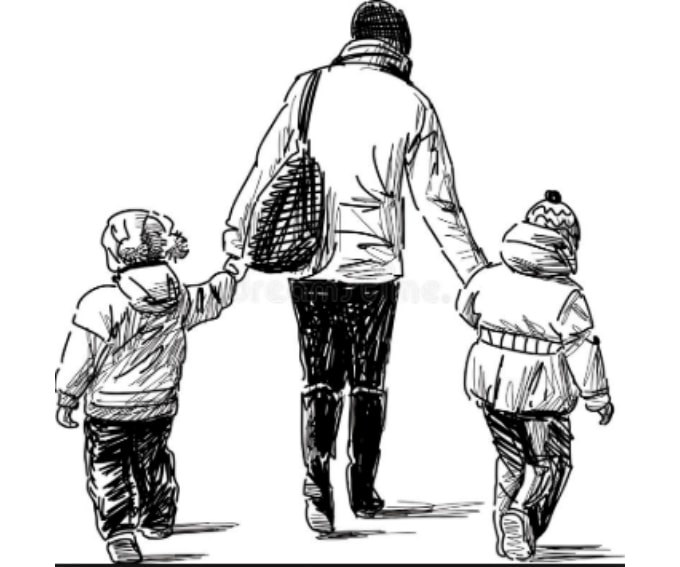KJIPUKTUK (Halifax) – Many Nova Scotians pride themselves on the friendliness and welcoming attitude of our province. Research I conducted in 2018 as a Community Development Honours student at Acadia University shows this pride is not always warranted, particularly as it affects low-income mothers and babies, and especially so in rural Nova Scotia.

In rural Nova Scotia, which encompasses most areas of the province outside of HRM, how much money a family has matters. There is stigma attached to elements of a lower-income life such as using public transportation. For mothers who are young, single, women of colour, low-income, mentally ill, or who have multiple children under 5, this stigma is intensified.
This lack of welcome within community is felt in almost every aspect of daily life from obtaining food, housing, and healthcare to sitting on public benches.
Infancy and early childhood are recognized as key developmental periods where health and wellbeing can be impacted for life. In these early years, the primary caregiver, still most often the biological mother, is a large part of a baby’s environment and it can be said that what impacts the mother will also inevitably impact the child. This is specifically true for the stress, worry, strife and discrimination faced by most low-income mothers.
Over the course of ten in-depth interviews I conducted with professionals who work with low-income mothers in fields from health to politics, the unfolding theme was one of an entrenched class system that is still prominent in Nova Scotia today.
Stories were told of low-income mothers dying because of discrimination in healthcare, of losing their children because of poverty and lack of supports, of facing invasive questions and discriminatory remarks when they access foodbanks, and of being unable to find adequate, safe, affordable housing because having children in and of itself was a barrier.
One such expert stated the connection between the sense of welcome of the mother and how it connects to the child this way, “If parents are stressed, if parents are challenged by work, if parents are stressed and their mental health is suffering, that’s going to translate to the child. So, the stigma around that again, is often the stigma that exists for those more marginalized. It’s how we dress, or what kind of car we drive, or what kind of stroller that we have, or do we breastfeed, or do we formula feed?And it doesn’t take long for a child to figure that out. An infant is probably immune to that but it doesn’t take long for a child to figure out that they are looked at with some stigma. ”
There are private landlord Facebook groups where single mothers are targeted and advice is given not to rent to them.
One professional described a landlord in her local area saying repeatedly “single moms wreck houses.” Another expert describes the problem this way, “And when we hear things like people telling us they feel they have been refused tenancy because they have children, that’s important. If people feel that they are being excluded because they are living in poverty, that’s important.”
See also: Landlords flout the law while government looks the other way
Many low-income mothers don’t feel safe in their neighbourhoods, and worry about mold and cigarette smoke around their homes, causing asthma and other health concerns for their children.
Just visiting public spaces with their child can be rife with unfriendliness and even result in calls to the town using choice words about low-income women because they dared to sit on a public bench.
That is if low-income mothers can access public spaces at all, many of their neighbourhoods don’t have sidewalks or trails that easily connect to parks and downtown. And they are still being asked to leave local businesses, even in 2019, when breastfeeding, and even when the business claims to be breastfeeding-friendly..
These behaviours affect low-income women even more than middle income women. One interviewee said “I had one mom say to me ‘they make me feel less than.That somebody should feel that way simply because they are who they are.”
So what does feeling welcome entail, and how do we achieve it for all members of our communities?
A research respondent described it this way: “you feel at home, you feel comfortable, you feel safe, there are, perhaps it would be gravy, but there might be things for you to do, or things that trigger your imagination to feel like you’re interacting with that space. Feeling welcome is about both having your basic needs met, and feeling a sense of belonging and acceptance from your community.
Communities like Kentville are achieving this with inclusive recreation programming, installation of parks near traditionally low-income neighbourhoods, and through listening to their citizens’ needs -all citizens, not just middle income and above.
It is also important that rural Nova Scotia communities recognize the overall high child poverty rates and take steps like supporting public transit, encouraging anti-oppression training for both agencies like child protection and welfare as well as non-profit services like food banks and family resource centres.
Programs like Moms in Motion and GrowTogether provide welcome and access to nutritious food and food literacy as well as recreation opportunities for families.
The answer to the question whether poor moms and babies are welcome in Nova Scotia is, no, not right now, but things are improving with the emergence of new programs, greater awareness of the challenges facing low-income mothers, and attitude shifts that recognize that the causes of poverty are largely systemic and not an individual shortcoming to be punished.
“Welcoming for us is where people feel safe, where people have the ability to thrive in their spirituality, their physical wellbeing, their psychological wellbeing and we’re very aware that people aren’t able to do that if they’re not able to stay themselves.”
Nova Scotia communities can work towards being places where moms and babies can “stay themselves” and thrive as citizens while their communities also flourish.
Laura Fisher is a Masters in Sociology student at Acadia University, a single mother of two, spoken word artist and activist. She writes and does research about poverty, women’s rights, mental health, and social justice.
With a special thanks to our generous donors who make publication of the Nova Scotia Advocate possible.
Subscribe to the Nova Scotia Advocate weekly digest and never miss an article again. It’s free!




See there four videos that describe everything in this piece. YWCA absolutely in agreement.
https://m.youtube.com/channel/UCrh8NrA_qE1ubZKrZE7Cqaw